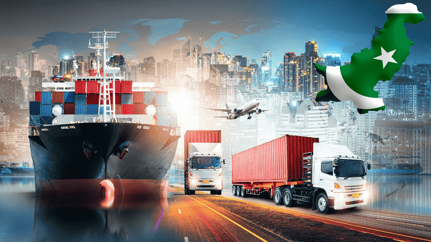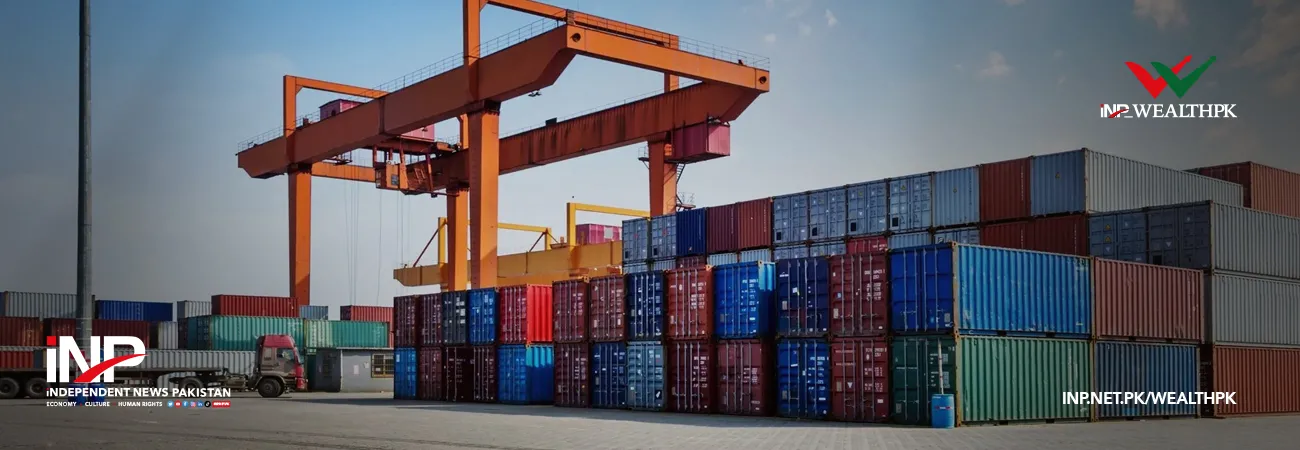آئی این پی ویلتھ پی کے
Muhammad Saleem
The Pakistan Hosiery Manufacturers and Exporters Association (PHMA) has urged the government to explore alternative transportation and logistics solutions to avoid shipment delays and consequent losses, as the recent road blockade in Sindh against the construction of canals caused significant financial losses to exporters.

Talking to WealthPK, Hazar Khan, Vice Chairman of the Pakistan Hosiery Manufacturers and Exporters Association (PHMA), said the situation was very challenging for the exporters when the protesters blocked roads in Sindh.
“Owing to these blockages, our costly goods were stuck on the roads, as drivers could not transport them to the ports. This situation, bringing huge losses to the exporters, serves as a wakeup call for the people at the helm to find alternative ways to ensure smooth dispatch of export goods.
“Anyone can block roads anytime without facing any legal action. Our hue and cry against the road blockade in Sindh fell on deaf ears. Only political pressure worked, and the government withdrew the proposed plan,” he said.
“Exporters cannot afford such shipment delays. The rulers must find alternative ways to ensure timely shipments. Only punctual delivery will bring home the much-needed foreign exchange and win the confidence of foreign buyers,” he added.
Alamdar Hussain, a knitwear exporter, told WealthPK that the recent road closures in Sindh had raised a question mark on the current logistics system. We must find alternative ways — it is a necessity.
“It is ironic that the country’s entire transport system depends heavily on roads. Nobody can ship products if there is a gridlock, a strike, or bad weather. We hardly use railways or air cargo. The inland water system of Pakistan has been completely ignored,” he said.
Alamdar said road blockades had shattered the confidence of foreign buyers. Under such circumstances, the foreign buyers will switch to the suppliers from other countries, he added.
“The government should subsidize air cargo so that the exporters can dispatch their products on time and without any issues,” he suggested.
Naseer Ahmed, a freight forwarder, said artificial intelligence is rapidly transforming every segment of life, but we are still using old methods to handle export shipments. He mentioned that the country’s customs clearance is slow, and port handling is outdated.
He said the exporters have to suffer financial losses due to delayed shipments and are forced to make air cargo arrangements to ensure the dispatch of their products to the offshore markets. If these issues are not addressed timely, Pakistan will lose foreign buyers and its reputation as a reliable exporter.
Asked why these issues persist, he said, “In my opinion, there is a lack of coordination among the ministries of commerce, railways, and transport. These departments have to join hands and work together to provide a level playing field to the exporters.”
Naseer Ahmed believes investment in logistics does not seem to be a priority for those in power, as most funds are directed toward other development sectors.
“Time and again, it has been observed that the exporters are treated as if they can adapt to anything. This approach is shattering the confidence of exporters and investors. We need a long-term plan for prosperity and sustainability,” he added.
Credit: INP-WealthPk












